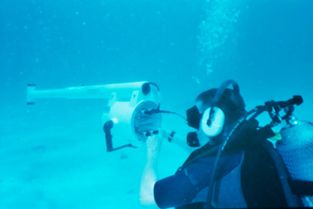Developing Magnetometer Techniques to Identify Submerged Archaeological Sites
Cornwall Council, 2010. https://doi.org/10.5284/1000130. How to cite using this DOI
Data copyright © Cornwall Council unless otherwise stated
This work is licensed under the ADS Terms of Use and Access.
Primary contact
Charlie
Johns
Cornwall Council
Kennall Building, Old County Hall
Station Road
Truro
TR1 3AY
UK
Tel: 01872 322056
Resource identifiers
- ADS Collection: 983
- ALSF Project Number: 5671
- DOI:https://doi.org/10.5284/1000130
- How to cite using this DOI
Introduction

In March 2009 English Heritage commissioned Historic Environment Projects, Cornwall Council to carry out an initial theoretical study to result in an Updated Project Design (UPD) to inform field trials of different types of marine magnetometer in controlled conditions. The project was funded through the Aggregates Levy Sustainability Fund (ALSF). The main part of the theoretical study was carried out by a team of external maritime and/or geophysics specialists.
Marine magnetic surveying has become a standard technique for mapping the location of ferrous material on the seabed. Existing guidance documents are concerned principally with data collection methods. The aim of the project was to acquire a better understanding of magnetic data and thus develop our ability to interpret these data with increased confidence.
It was envisaged that the main product of the completed project would be a viable methodology and guidance for general use of magnetometers in marine historic environment investigations and for the interpretation of the acquired data. This would contribute to the better management of known wreck sites in marine aggregates producing areas, help to inform license applications for marine aggregate dredging, enhance the ability to assess archaeological potential and has potential benefits in reducing the time and cost of marine investigations.
The scope of the theoretical study included existing literature, and guidance on the use of magnetometers in marine archaeological surveys, performance, targets and signals, deployment, post-acquisition processing of data, archiving, and publication. The results are presented in this report; the study calls into question Hall's equation upon which interpretation of magnetic data has been based since 1966 and recommendations are made for conducting magnetic surveys and for further investigation.
Following submission of the draft theoretical report English Heritage decided not to move forward with the UPD and fieldwork stage partly in view of the current guidance on marine geophysics being prepared by Dr Justin Dix of Southampton University and partly because of an advised cut to the ALSF budget. The recommendations resulting from this study will therefore be incorporated into Dr Dix's forthcoming guidelines.







